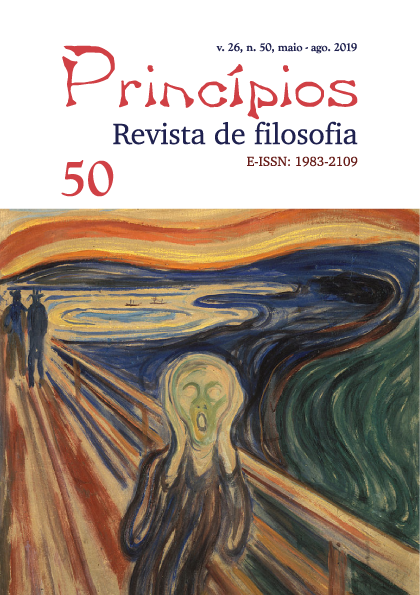Análise dos discursos: uma forma de combate ao racismo sob perspectivas filosófica e discursiva
DOI :
https://doi.org/10.21680/1983-2109.2019v26n50ID15756Mots-clés :
Discurso; Filosofia; Étnico-Raciais; Reflexão.Résumé
Neste artigo fazemos uma reflexão filosófico-discursiva
acerca das relações étnico-raciais no contexto social atual em que a
sociedade brasileira, uma vez constituída por meio da miscigenação
de povos e suas respectivas culturas, raramente tem atribuído o protagonismo
a todos os componentes que são parte da história da nação,
pois tem havido dois grupos sociais sistematicamente excluídos e
apagados do processo de construção da cultura brasileira: os negros
e os indígenas. A linguagem, nesse âmbito, serve para a estruturação
das relações sociais e, em simultâneo, também é usada para a manutenção
do status quo como estruturas das hegemonias de poder e dominação
de uns sobre outros, tal qual um mecanismo naturalizado e
aceito pelos integrantes desse sistema, sejam eles os dominadores ou
dominados. Metodologicamente realizamos a análise discursiva com
base em interpretações dos gêneros discursivos/textuais utilizados nos meios de informação e comunicação em nossa sociedade, especificamente,
selecionando em meio a textos jornalísticos publicados via
internet e com assinatura de autores que defendem um ou outro ponto
de vista discursivo em relação às relações étnico-raciais presentes
em nossa sociedade. Assim, discutimos os princípios éticos pelo viés
filosófico como base para a construção coletiva de princípios, principalmente
os que se inserem nas relações étnico-raciais.
Téléchargements
Téléchargements
Publié-e
Comment citer
Numéro
Rubrique
Licence
Autores mantêm os direitos autorais e concedem à revista o direito de primeira publicação, com o trabalho simultaneamente licenciado sob a Licença Creative Commons Attribution que permite o compartilhamento do trabalho com reconhecimento da autoria e publicação inicial nesta revista.
Termos da licença:
| Não Comercial (NC) | Os licenciados podem copiar, distribuir, exibir e executar a obra e fazer trabalhos derivados dela, desde que sejam para fins não comerciais. |
| Compartilha Igual (SA) | Os licenciados devem distribuir obras derivadas somente sob uma licença idêntica à que governa a obra original ou menos restritiva. |


 Português (Brasil)
Português (Brasil) English
English Español (España)
Español (España) Français (Canada)
Français (Canada)


